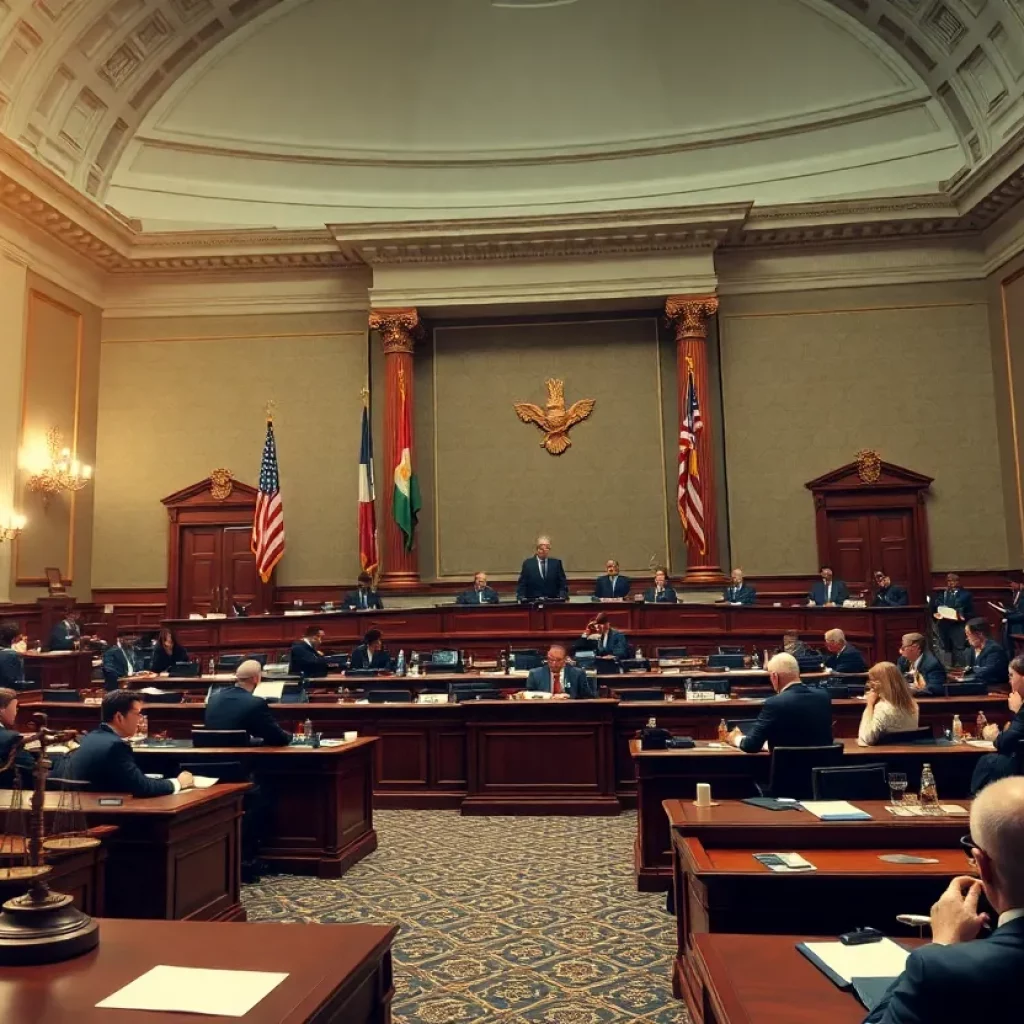News Summary
Senate Bill 30 is advancing in Texas, aiming to limit personal injury claims by capping damages and introducing stricter rules for jury awards. While supporters argue it curbs frivolous lawsuits, opponents warn it may lead to insufficient compensation for victims. The bill passed the Texas House with bipartisan support but faces uncertainty ahead as it moves to the Senate for further consideration.
Senate Bill 30 Sparks Controversy Over Personal Injury Reform in Texas
In a bold move aimed at reshaping the landscape of personal injury and wrongful death claims in Texas, Senate Bill 30 (SB30) is making headlines as it progresses through the legislative process. With a focus on curbing what critics describe as ‘nuclear verdicts’—excessive damage awards that have raised eyebrows among businesses and lawmakers alike—this bill is stirring a considerable debate across the state.
Current Legislative Status
Recently, the Texas House passed SB30 with a vote of 87-51, complementing a prior preliminary vote of 94-52, indicating a strong push for reform among lawmakers. Notably, the bill has garnered support from at least five Democratic representatives, signaling a degree of bipartisan agreement on this contentious issue.
Key Provisions of SB30
With the primary authorship of Georgetown Republican Senator Charles Schwertner, SB30 introduces several provisions aimed at limiting the amount of recovery available to injury victims. Under this legislation, plaintiffs would only be allowed to claim the actual amount they or their insurance has paid for medical services when seeking damages. Additionally, juries would be required to restrict damage awards to predetermined options based on specific limits, such as the maximum amounts allowed by Medicare.
Support and Backing
Proponents of SB30 argue that the legislation is crucial in reducing frivolous lawsuits that they believe have cluttered the Texas legal system. Organizations like Texans for Lawsuit Reform, which represents broad sectors including energy and oil companies, have prioritized this bill, advocating that it will bring much-needed predictability and stability to the business community in Texas. Ensuring that companies remain insulated from excessive litigation costs is at the forefront of their agenda.
Addressing Concerns
Initially, the proposed bill faced backlash for provisions that restricted jury awards for “noneconomic damages,” like pain and suffering. However, amendments were swiftly enacted to address these concerns, allowing judges greater discretion over the admissibility of medical evidence, a change that could influence how cases unfold in the courtroom. Among these amendments were alterations to remove demands for billing codes and shift from detailed itemized lists to a more simplified summary of services rendered.
The Opposition Speaks Out
Opposition to SB30 has emerged from various corners, particularly from the Texas Trial Lawyers Association, who contend that the bill reflects a misunderstanding of public sentiment surrounding lawsuit reform. Critics express serious concerns that this legislative change could lead to insufficient compensation for victims, especially those facing lifelong injuries. Insights from individuals like Gabriel Alvarado, who sustained severe injuries in an accident, illustrate the potential risks of inadequate compensation that could arise from the passing of this bill.
What Lies Ahead
For SB30 to become law, it now requires the Texas Senate’s approval of recent amendments or a harmonization of differences through a committee. The outcome remains uncertain, with strong sentiments on both sides of the issue.
The Bigger Picture
The debate surrounding SB30 reflects a critical shift in Texas’ approach to personal injury claims and raises pivotal questions regarding the balance between curtailing excessive litigation and ensuring fair compensation for individuals affected by negligence. As lawmakers continue to negotiate the intricacies of this bill, the implications for both victims and businesses could reshape the legal landscape and redefine what justice looks like in Texas.
Deeper Dive: News & Info About This Topic
HERE Resources
Texas Personal Injury Lawsuit Reform Bill Fails, Leaving Lawyers Celebrating
Additional Resources
- FreightWaves: Texas Senate Bill 30 Sparks Controversy Over Personal Injury Reform
- Texas Tribune: Texas Senate Passes Personal Injury Reform Legislation
- CNN: Texas Personal Injury Bill Raises Concerns Among Advocates
- NPR: Texas Lawmakers Debate Controversial Injury Lawsuit Bill
- KRIS 6 News: SB30 Legislation in Texas Under Review
- Wikipedia: Texas Legislature
- Google Search: Texas Senate Bill 30
- Google Scholar: Senate Bill 30 Texas
- Encyclopedia Britannica: Legislation
- Google News: Texas Personal Injury Reform
Author: STAFF HERE CHARLESTON
The CHARLESTON STAFF WRITER represents the experienced team at HEREcharleston.com, your go-to source for actionable local news and information in Charleston, Charleston County, and beyond. Specializing in "news you can use," we cover essential topics like product reviews for personal and business needs, local business directories, politics, real estate trends, neighborhood insights, and state news affecting the area—with deep expertise drawn from years of dedicated reporting and strong community input, including local press releases and business updates. We deliver top reporting on high-value events such as the Spoleto Festival USA, Charleston Wine + Food Festival, and the MOJA Festival. Our coverage extends to key organizations like the Charleston Metro Chamber of Commerce and the Charleston Museum, plus leading businesses in tourism and maritime industries that power the local economy such as South Carolina Ports Authority and the Charleston Visitor Center. As part of the broader HERE network, including HEREaiken.com, HEREbeaufort.com, HEREchapin.com, HEREcharleston.com, HEREclinton.com, HEREcolumbia.com, HEREgeorgetown.com, HEREgreenwood.com, HEREgreenville.com, HEREhiltonhead.com, HEREirmo.com, HEREmyrtlebeach.com, HEREnewberry.com, HERErockhill.com, HEREspartanburg.com, HEREaustin.com, HEREcollegestation.com, HEREdallas.com, HEREhouston.com, and HEREsanantonio.com, we provide comprehensive, credible insights into South Carolina's dynamic landscape.










